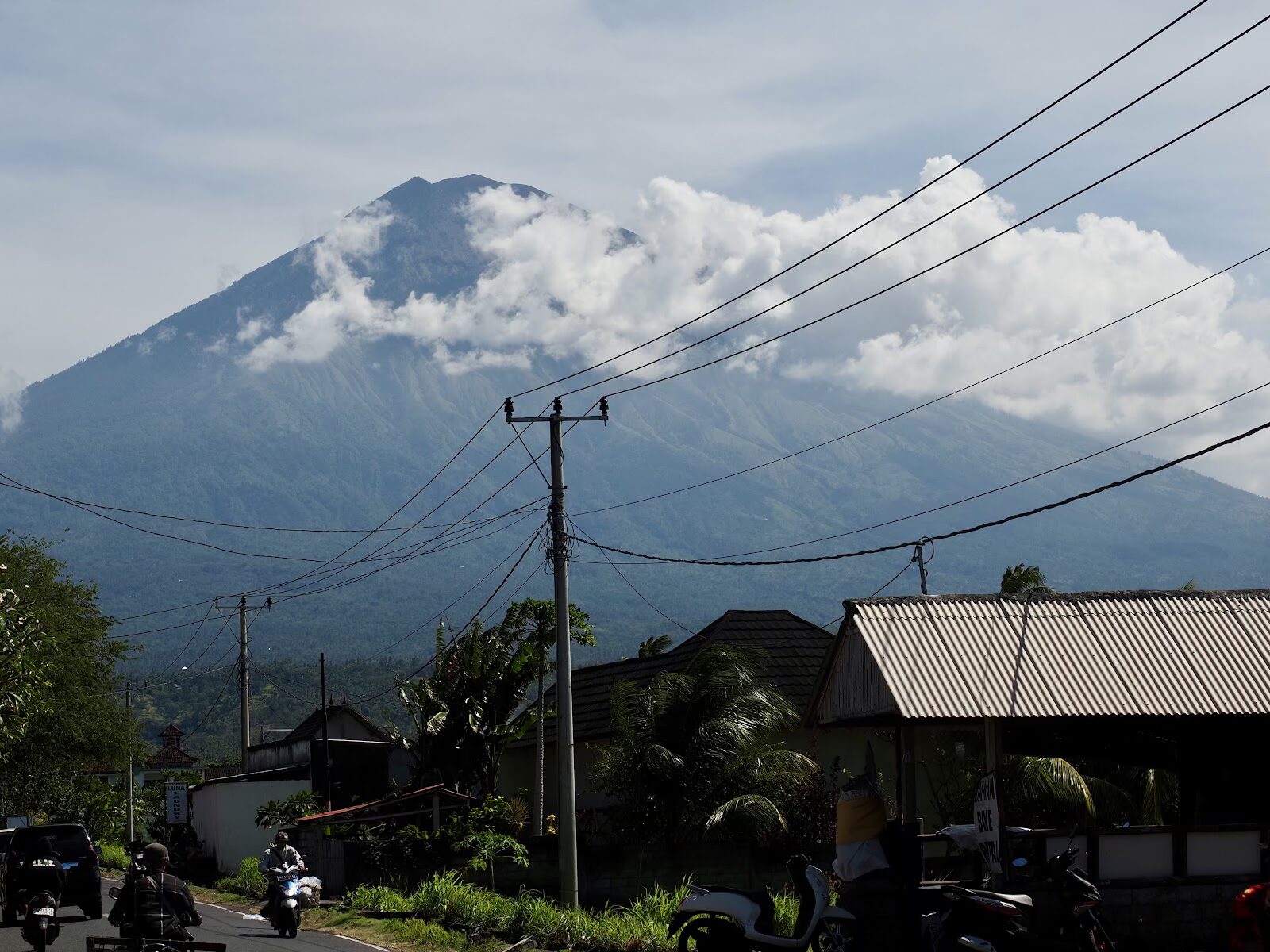Trying to Make Sense of Bali
Mon Jul 28 2025
|Conor and AlinaBali is one of Indonesia’s 17,500+ islands — yet it’s one of the very few most people can name. It’s relatively small, just 112 km from north to south and 153 km from east to west, but it’s packed with over 4.4 million people.
Tourism here is massive, and accounts for about 60%-70% of the regional GDP. People come to Bali for all kinds of reasons: the tropical beaches, the food, the near-perfect surf, the cheap alcohol and parties, the yoga retreats and wellness clinics, the digital nomad lifestyle, the endless selfie spots to boost your Instagram feed, the five-star villas, the volcano hikes and waterfalls, the affordable dental work, the diving and coral reefs, and of course the Hindu temples that are scattered all over the island.
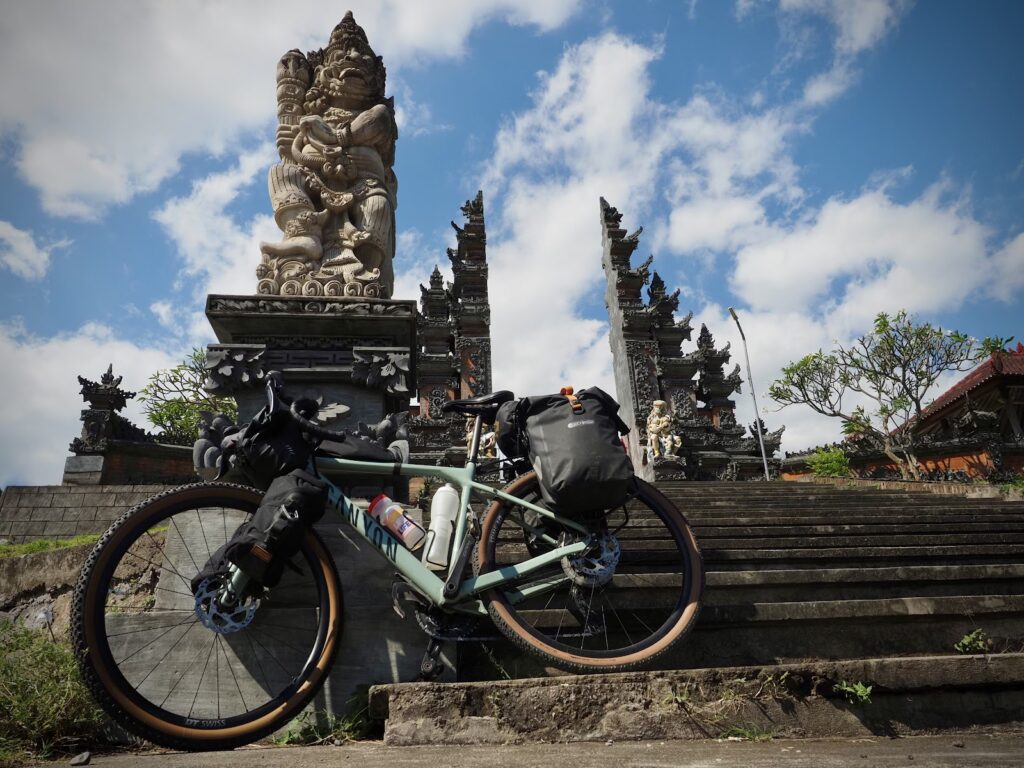
But why were we here?
Honestly… because the flights from Melbourne were cheap. And because we’re still trying to forge our new identities as cool, sexy, clever, and culturally-aware explorers of the world — still desperately reckoning with our own self-image as travelers, not tourists.
Maybe a bit of adversity would help us build some credibility. Maybe cycling through Indonesia would earn us enough cultural capital to hold our own in the right kinds of conversations.
You know the ones.
The ones that are whispered in underground cocktail bars.
The ones that unfold in Paris cafés or around the vegan buffet at a climate action convention.
The ones in which someone casually quotes a poet, and everyone else nods along.
The ones the beautiful people have on the green carpet at the latest sustainable fashion brand activation.
The ones where people effortlessly hold court in their second or third language — and where, even though no one admits it, everyone’s waiting for their moment to casually and skillfully drop a detail that signals: I belong.
“Oh, you know that reminds me of a time I was bikepacking through Indonesia. It was raining, and I had no money — because you know I’d recently realized that currency is just a social construct used by the ruling class to maintain power. Anyway, earlier that day I’d gifted my tent to an Indigenous woman, so I had nowhere to sleep. — I knocked on the door of a local family and they took me in for the night. They taught me how to cook their traditional food. It was such an authentic, unique experience — you know, the type you could never find out about in a generic travel blog. — The thing about Indonesia is that the people there have so little, but they’re so happy. It really makes you think about how sick our society is.”
That kind of conversation.
We’re still not entirely sure what brought us to Bali. But once we arrived, we dipped our toes into a bit of everything — just to see if any of the reasons people come here would actually resonate with us.
We started off in Sanur, a small town/resort to the east of the capital Denpasar. Think of it as a sort of holding pen for tourists, where they can acclimatise to the culture before they venture out to view the rest of the island, or in many cases they just stay there.
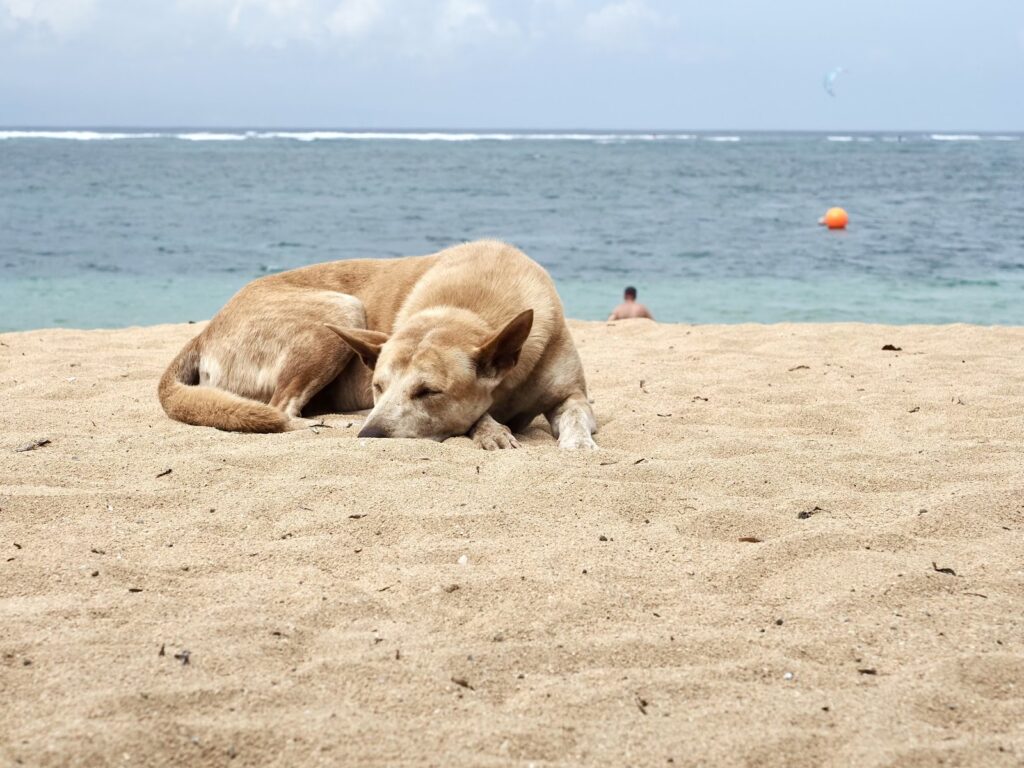
To be fair, we didn’t see a single incident of drunken hordes of Australians working on their tank top tan lines that we were warned about. They were definitely on the plane over with us, but once we left the airport, we somehow got segregated. They went their way, and we crammed our bikes into a taxi and went ours.
We decided this was a good time to relax before we hopped on our bikes, so we consumed some relaxation and outsourced all of our usual tasks. No more cooking, no more cleaning, no more worrying. Except we were still worrying — worrying about not brushing our teeth with the tap water, worrying about the heat, worrying about foodborne illness, worrying about how the hell we were going to navigate the raging river of scooters that they call a road.
We needn’t have worried about cycling amongst the traffic. The scooters have a way of flowing around you that’s really quite pleasant. The rules of the road are few and subjective, but there’s a sense of collective understanding. We were part of the mayhem, as opposed to the cause of it. In NZ and Australia, we’d been terrified by massive trucks hurtling past us. But here, we were constantly amazed by how much more could be carried on a scooter. Want to transport a few 2-meter planks of wood? No problem. A thousand eggs? Sure. A family of four? Absolutely, just throw it onto the back of the Honda Scoopy and go.
Once we left the sprawl of Denpasar and glimpsed the first rice paddies, we had the fleeting feeling that we were entering the real Bali — the parts that no Western eyes had ever seen before. That feeling lasted about two minutes. Tourism was everywhere. We couldn’t escape it. And no matter how different we felt, we were not different. We were just another flavor of tourist.
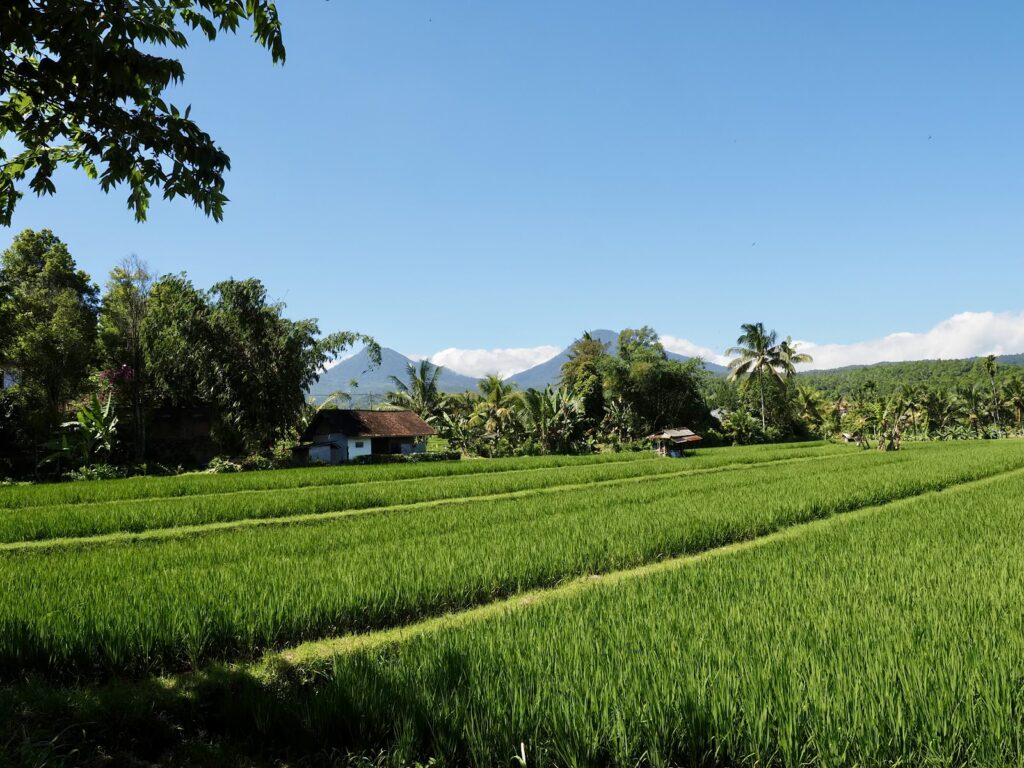
So we leaned into it. We booked ourselves some picturesque accommodation and spent a night or two in an isolated wellness bubble, to see if we could purchase any more relaxation to help us cope.
A few days in, we were still smiling, still enjoying the local food and the eternally happy people. We even found time between our relaxation appointments to visit a butterfly sanctuary. The sanctuary delivered some excellent content — enough to sustain our instagram stories, and if we played our cards right maybe even a full reel.
The days passed and we still hadn’t lifted a finger. Everything was cheap and easy. It was the good life. And yet — something wasn’t quite right.
After a non-insignificant mental episode and a noticeable dip in our moods, we hypothesised that we’d lost our sense of agency and that it was starting to affect us. We weren’t doing anything for ourselves. We were like fat children in pushchairs. And it couldn’t continue.
So we made a decision. On the spot, we booked flights to Ho Chi Minh City, cutting our time in Indonesia short by four weeks. That meant forfeiting our exit flight to Singapore and cancelling plans to visit Lombok. But giving ourselves a tighter timeframe sharpened our focus — and we immediately felt vindicated.
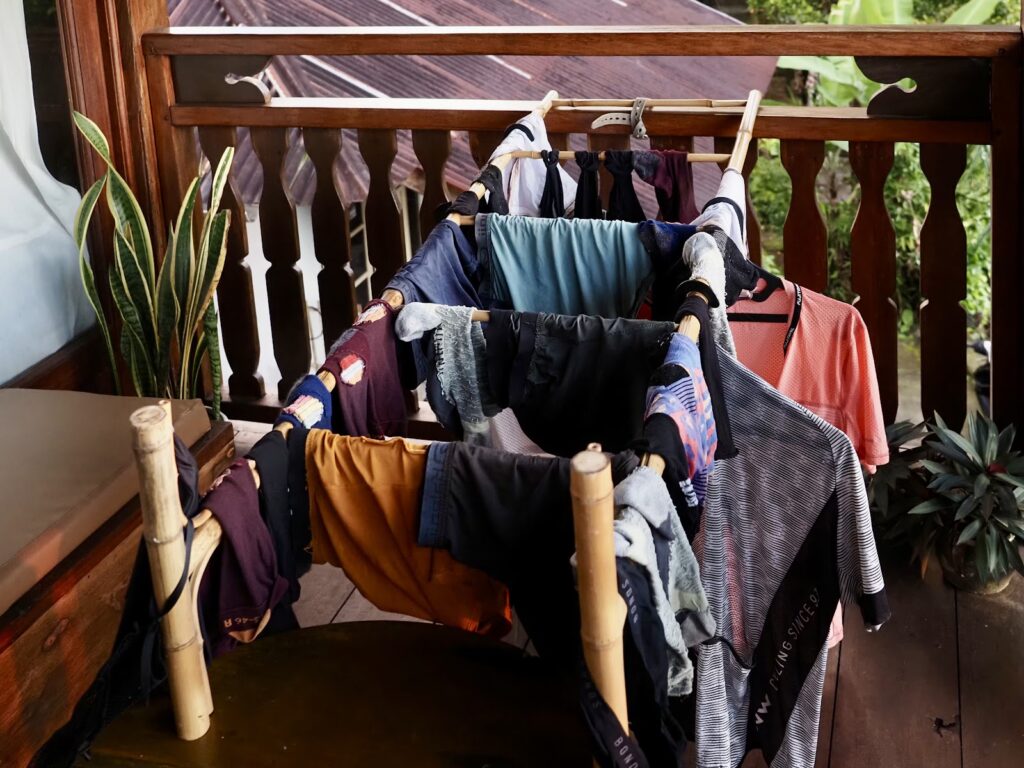
Once we recognized our loss of agency, we could look at our Bali experience with new eyes. We reconnected with our “roots” as smelly, unkempt bicycle tourists and pedalled north with a renewed sense of self.
It wouldn’t be long before we were back to doing nothing for ourselves — but at least now we were aware of it. We were also enjoying long stretches of being the only white people around, which reinforced our self-image as “adventurers,” boldly going where the masses had not. We felt so adventurous that in the seaside town of Amed we decided to take a freediving course — it was the kind of thing that you feel like you have to do while the opportunity is there. It was not exactly in our budget but we felt a sense of pressure to take advantage, knowing full well that back home it would simply be too much of a financial risk.
During the course we learned to hold our breath and dive safely underwater. Alina discovered she had the superpower of equalizing her ears at will, while Conor struggled to pop his. But it was fun — and the kind that we would never do if we were at home.
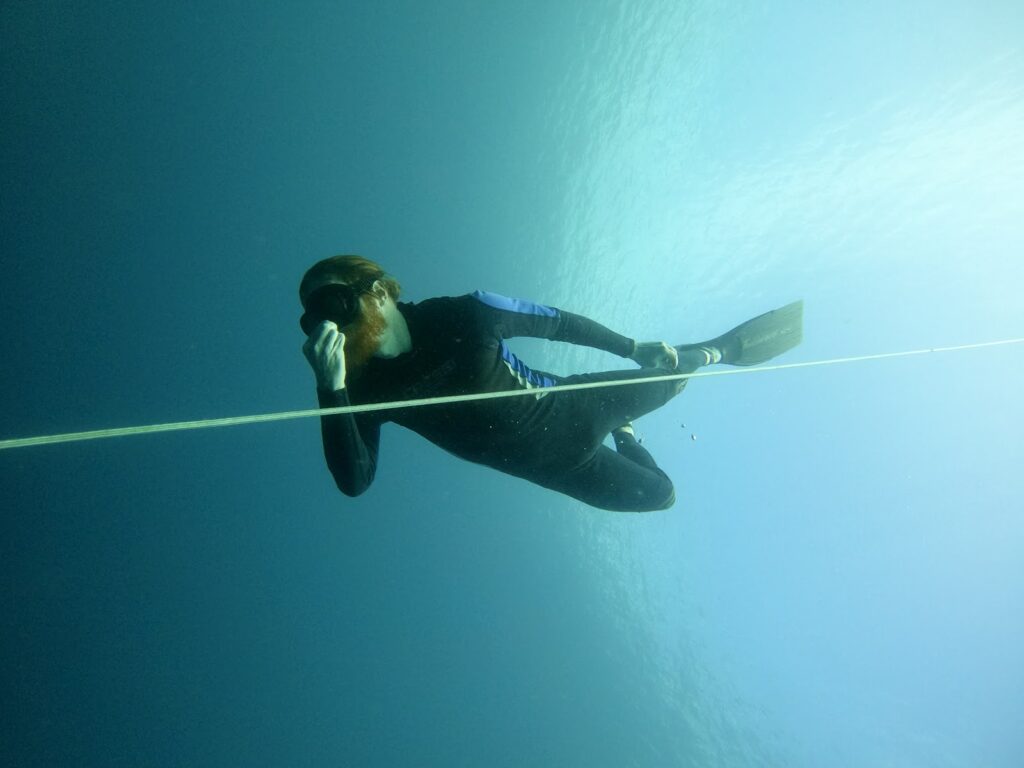
This affordability is a double-edged sword. On one hand, we could stay in amazing accommodation, try freediving, and eat out every night. On the other hand, we saw the shadow side — like when we foolishly signed up for a “sunrise dolphin viewing experience.”
When our host casually asked, “Do you want to see dolphins in the morning?” We enthusiastically said yes. We imagined something quiet and meaningful, just us a few playful dolphins and the fresh sea breeze. We woke up at 5:45am and walked 10 meters from our beds to the beach. It turned out we weren’t alone. This wasn’t the boutique experience that we were expecting. We were squeezed into a tiny fishing boat with a few other drowsy tourists and off we went in search of some local dolphins.
The boat took off just after sunrise. It was peaceful — for a moment. But as the light grew, so did the fleet. Hundreds of boats crowded the water, all racing to find and surround the same pod of dolphins. It wasn’t an encounter. It was a hunt.
The dolphins swam in frantic arcs, clearly trying to escape. Each boat jostled for a better position, chasing the pod every time they surfaced. It was stomach-turning.
We came back to land feeling frustrated, ashamed, and confused. But what could we say? As long as people pay for that kind of experience, it will exist. Who were we to judge? All we could do was be more skeptical of such offers going forward— and acknowledge that our values would keep being challenged.
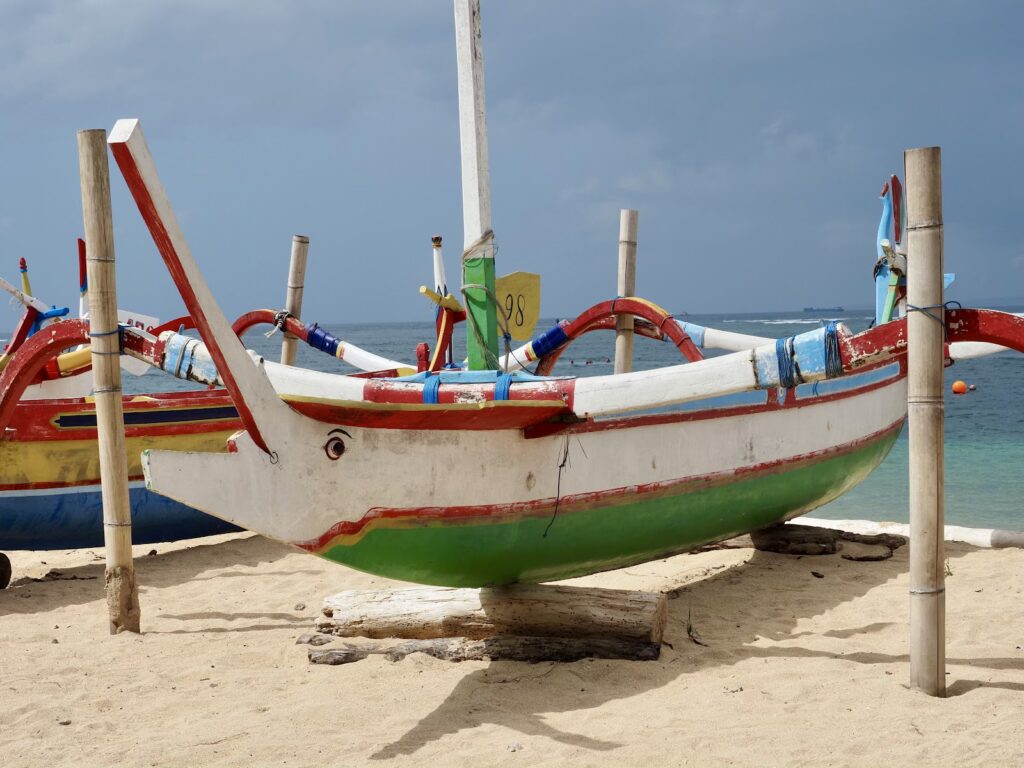
Of course, having your values challenged is part of living the unsheltered life. One of the more challenging moments came when we slowly, and somewhat embarrassingly came to realize that the smoldering piles of ash that we were passing on the roadside weren’t “offerings to the gods,” as we’d guessed. They were in fact flaming mounds of plastic — rubbish tossed into ditches and set alight as a crude form of waste management. Thankfully, our freediving course came in handy — we could now hold our breath long enough to pedal through a plume of burning plastic without gagging.
However once you notice it, you can’t unsee it. Or unsmell it. The burning plastic became part of our days — a low, acrid haze in the air. At first, it triggered outrage. Then discomfort. Then resignation.
To be fair, in many places, open burning is seen as the lesser evil. When the alternative is dumping waste into rivers or the sea, fire becomes the most immediate — if toxic — solution. To make matters worse, the plastic that was spared from the fire had a habit of finding its way into the rivers and coastlines. We cycled past waterways choked with debris and beaches where plastic bags floated like jellyfish. It’s easy to judge until you realise how few options exist in communities with no proper infrastructure and how overrun they are by tourists.
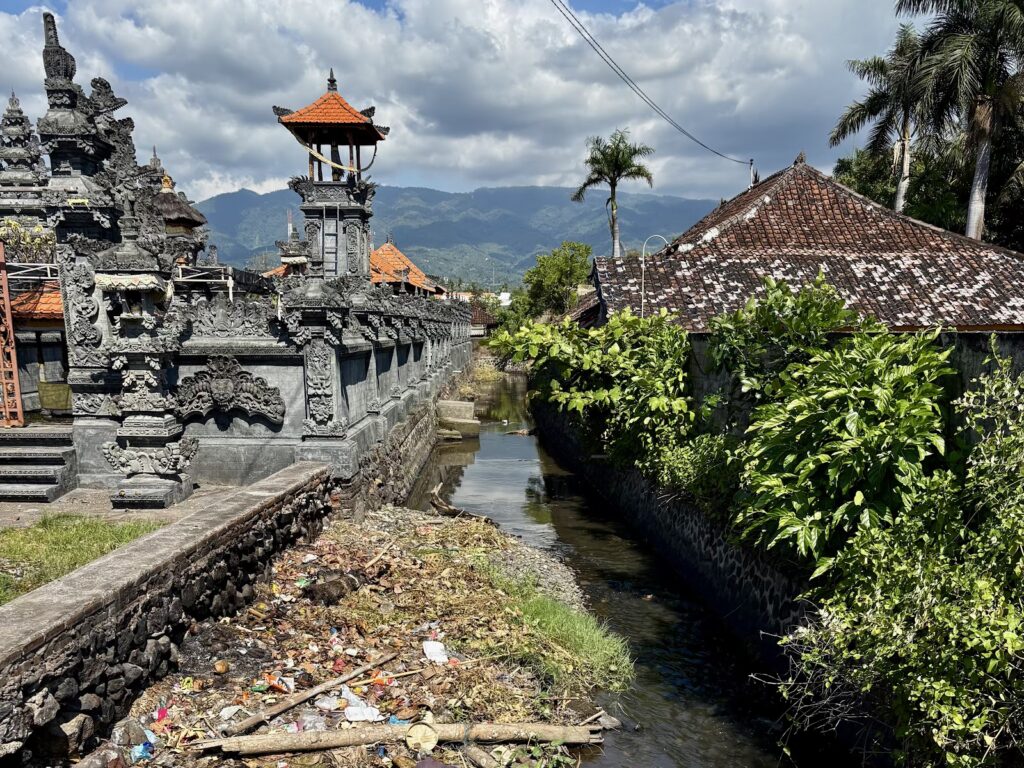
And still, we weren’t innocent. We left behind plastic bottles in hotel rooms, food wrappers in restaurant bins, never stopping to think what would become of them, just hopping back on the bikes and blissfully cycling away. It was a case of out of sight, out of mind. Whilst simultaneously condemning a problem we quietly contributed to.
Yet amid the smoke and litter, we also saw something else: a radically different relationship to material things.
In the same streets where rubbish burned, people reused and repaired everything — not as a lifestyle, but as a necessity. Plastic containers became plant pots. Inner tubes became bungee cords. Broken furniture was fixed rather than replaced. Nothing was wasted without a fight.
Back home, we spend hours sorting, cleaning, and drying our recycling — but wouldn’t hesitate to throw out a glitchy toaster or replace a phone that feels “a bit slow.” An electrical fault back home means the end. Here, it just means a repair.
It struck us how often “sustainability” in wealthier countries is performative — a curated set of habits that coexist with a culture of convenience. Meanwhile, in places with far fewer resources, frugality isn’t a virtue reserved for the environmentally conscious.
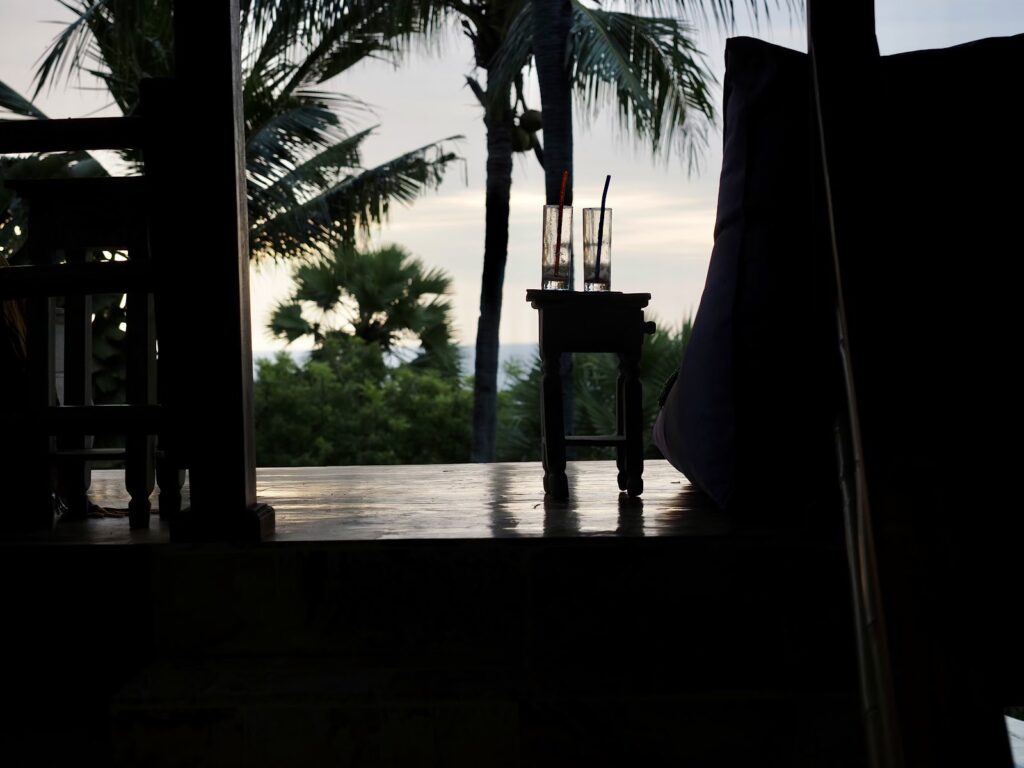
So why were we in Bali? We came to Bali to distinguish ourselves from the tourists and prove our worth as travelers who can navigate strange lands with ease, and rub shoulders with the common man. We weren’t buying souvenirs or engaging with the obvious consumerism, but we were trying to purchase something, a version of ourselves. Something we could extract from the island and use to shape our own identities, and in that sense, we weren’t so different from the people we were trying not to be.
Bali is whatever side of it you choose to see. If you want beaches, you’ll find beaches. If you want temples, parties, budget enlightenment, healing retreats, or Instagram reels with the perfect backdrop — they’re all here, ready to be consumed. The island adapts to your gaze. But what’s easy to overlook is that the flexibility comes at a cost. For every curated experience, there’s someone behind the scenes making it possible — often with little choice in the matter. The island gives and gives, but it’s not without consequence. How you view Bali depends on what you choose to see. The question is: what are you willing to ignore?


